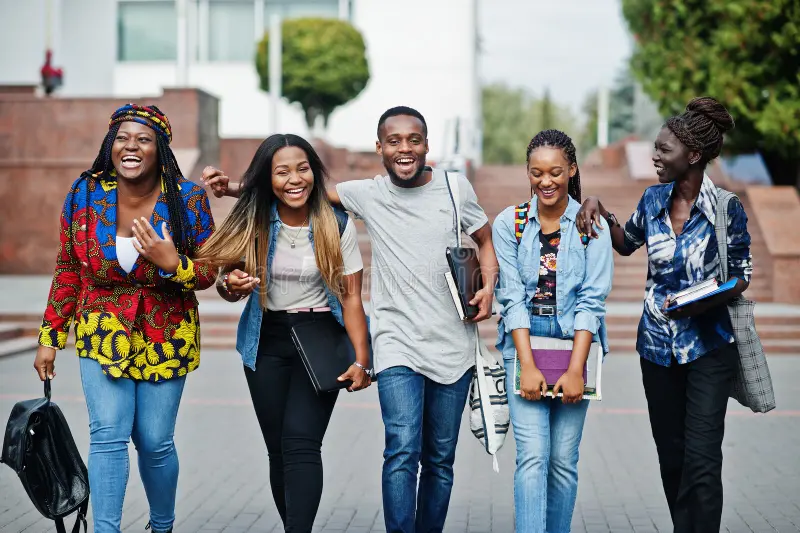Top 10 F1 Visa Interview Questions in Pakistan

Key Highlights
- Explain why U.S. education offers unique opportunities.
- Highlight how the U.S. location fits your career goals.
- Show how U.S. curriculum offers advanced experiences.
- Address Pakistan's political/economic situation positively.
- Share extracurricular activities related to your field.
- Outline plans to contribute to Pakistan’s development.
- Show readiness to adapt to U.S. culture and lifestyle.
- Acknowledge challenges in the U.S. system and how to overcome them.
- Maintain cultural ties with regular communication and activities.
Navigating the F1 visa interview can be an overwhelming experience, especially for Pakistani students who dream of pursuing higher education in the U.S. With thorough preparation and an understanding of the most commonly asked questions, you can approach the interview with confidence.
This blog covers the top 10 F1 visa interview questions, along with tips and sample answers designed specifically for Pakistani students. Whether you’re pursuing Computer Science, Business Administration, Psychology, or another field, these insights will help you ace your interview.
Top 10 F1 Visa Interview Questions in Pakistan
1. What motivated you to pursue higher education in the U.S. instead of pursuing opportunities in Pakistan?
Tip: Focus on what makes U.S. education unique compared to what’s available in Pakistan. Be specific about the opportunities you want to explore, such as advanced research, diverse academic resources, or industry connections.
Sample Answer 1: "I decided to pursue my higher education in the U.S. because of the advanced learning opportunities available there. While Pakistan has great universities, the U.S. offers specialized Computer Science programs that focus on cutting-edge technologies like artificial intelligence and machine learning, which are not yet widely taught here. I want to immerse myself in these fields and return to Pakistan with knowledge that will benefit both my career and the tech industry here."
Sample Answer 2: "Studying Business Administration in the U.S. provides access to global case studies and internships with multinational companies that are not available in Pakistan. The U.S. offers a broader platform for me to learn the latest business strategies, which I can bring back to Pakistan to help local businesses grow and succeed in the global market."
2. Can you explain why you chose to study in a particular state or city in the U.S.?
Tip: When choosing a location, think beyond the university’s reputation. Discuss the state or city’s significance in your field of study and how it aligns with your personal preferences or career goals.
Sample Answer 1: "I chose to study in Texas because of its reputation as a technology and innovation hub. The university I’m attending is located in Austin, which has a growing tech industry. This aligns with my interest in software engineering, and I believe being in such a city will provide valuable networking opportunities through internships and industry events."
Sample Answer 2: "I selected Boston for my studies because it is home to some of the world’s leading business schools and offers access to a rich ecosystem of startups and financial institutions. As someone pursuing an MBA, this will give me the chance to build connections with business professionals and learn from real-world case studies in a city known for its academic rigor."
3. How does the curriculum of your chosen program compare to similar programs offered by universities in Pakistan?
Tip: Showcase how the U.S. curriculum is more specialized or advanced compared to what’s available in Pakistan. Focus on practical experiences like internships, labs, or projects that are often more accessible in the U.S.
Sample Answer 1: "In the U.S., the Computer Science curriculum at my university offers advanced coursework in data science and cyber security, which are not as heavily emphasized in Pakistan. The program also includes a mandatory internship with a tech firm, allowing me to gain hands-on experience while still in school, something not widely available in Pakistani programs."
Sample Answer 2: "The Business Administration program in the U.S. places a strong emphasis on real-world case studies, internships, and global business strategies, areas that are not as prevalent in Pakistani institutions. Additionally, the U.S. program allows for flexibility in choosing electives, which lets me tailor my degree to focus on entrepreneurship, something I’m passionate about."
4. What are your thoughts on the current political or economic situation in Pakistan, and how might it affect your plans?
Tip: Show awareness of the current situation but frame your response positively. Highlight how studying in the U.S. is a way to contribute to Pakistan’s future.
Sample Answer 1: "Pakistan is going through economic challenges right now, which has made it difficult to access certain educational resources. By studying in the U.S., I can gain skills that are currently in high demand, such as digital marketing. Once I’ve completed my studies, I intend to return and apply these skills to help local businesses thrive in a struggling economy."
Sample Answer 2: "While the political situation in Pakistan is unpredictable, I see my U.S. education as a way to positively impact my country in the future. Studying in the U.S. will allow me to learn from stable institutions and environments, and I plan to return to Pakistan with the knowledge I gain, particularly in the field of social sciences, to support civic engagement and community development."
5. Have you participated in any extracurricular activities or projects related to your field of study in Pakistan?
Tip: Mention any relevant academic clubs, projects, or internships. Emphasize how these experiences have prepared you for studying abroad.
Sample Answer 1: "Yes, I have been actively involved in a coding club at my university in Pakistan, where we work on various software development projects. Recently, I led a team to create a mobile application for local businesses, which was an invaluable experience in terms of both technical skills and leadership. This has prepared me to take on advanced Computer Science courses in the U.S."
Sample Answer 2: "I was part of a student-led entrepreneurship club where we worked on developing small business ideas and pitching them to investors. This experience gave me practical insights into the challenges of starting a business, and I’m excited to build on this in my MBA program in the U.S. by learning more about international business strategies."
6. How do you plan to contribute to your home country’s development after completing your studies?
Tip: Highlight your long-term goals and how they align with Pakistan’s needs. Show that you’re committed to returning and making a difference.
Sample Answer 1: "After completing my Computer Science degree, I plan to return to Pakistan and work in the tech sector. Specifically, I want to focus on developing educational apps that can help increase access to quality learning materials in rural areas. My goal is to use technology to address the education gap in Pakistan, especially in underprivileged communities."
Sample Answer 2: "With an MBA, I aim to start a company in Pakistan that focuses on sustainable business solutions. There’s a growing need for businesses to adopt environmentally friendly practices, and I believe my knowledge from the U.S. will help me contribute to this important sector. By promoting sustainability, I hope to create jobs and foster economic growth in Pakistan."
7. What steps have you taken to familiarize yourself with U.S. customs and lifestyle?
Tip: Show that you’ve done your homework and are ready to adapt to American culture. Mention any research or personal interactions you’ve had.
Sample Answer 1: "I’ve done a lot of research about U.S. customs and lifestyle through online resources and have connected with current Pakistani students in the U.S. They’ve shared their experiences, which has given me a good idea of what to expect. Additionally, I’ve been practicing English daily to improve my communication skills, and I’ve started following U.S. news to stay informed about current events."
Sample Answer 2: "I’ve attended cultural exchange programs in Pakistan where I learned about American holidays, customs, and food. I’ve also watched documentaries and read blogs written by international students about their experiences in the U.S., so I’m well-prepared for the cultural shift. I’m looking forward to experiencing new traditions while sharing my own culture with others."
8. Can you describe any challenges you foresee in transitioning to a U.S. education system and how you plan to overcome them?
Tip: Acknowledge the potential challenges, like differences in teaching styles, but show you’ve thought about how to adapt.
Sample Answer 1: "I think one challenge might be adjusting to the more interactive and discussion-based teaching style in the U.S., which is different from the lecture-based approach in Pakistan. To overcome this, I plan to participate actively in class discussions and seek feedback from professors to ensure I’m on the right track. I’m also prepared to ask for help from peers if needed."
Sample Answer 2: "Adapting to a different grading system might be challenging initially, as the U.S. education system tends to emphasize continuous assessment. To manage this, I will stay organized by keeping track of deadlines and assignments and making use of university resources such as tutoring centers and academic advisors."
9. How do you plan to stay connected with your family and maintain your cultural ties while studying abroad?
Tip: Show your commitment to staying in touch with loved ones and staying rooted in your culture.
Sample Answer 1: "I plan to keep in touch with my family through regular video calls and social media. Staying connected with my roots is important to me, so I will also be joining Pakistani student organizations in the U.S. This will allow me to celebrate our cultural festivals and traditions even while I’m away from home."
Sample Answer 2: "I’ll use WhatsApp and Skype to talk to my family regularly, and I’ve already researched cultural events that are hosted by Pakistani communities in the U.S. I also plan to cook traditional Pakistani dishes with fellow students to maintain a sense of home and culture while I’m studying."
10. In case of any unforeseen circumstances that affect your ability to study in the U.S., what contingency plans do you have?
Tip: Demonstrate that you’ve thought ahead and have a backup plan in case things don’t go as expected.
Sample Answer 1: "If any unforeseen issues arise, like a visa delay or a family emergency, I have already discussed options with my university’s international student office. They assured me that they have support systems in place, and I’m confident I can defer my admission or seek assistance through their resources."
Sample Answer 2: "My family is financially stable, and I’ve also looked into emergency funds offered by my university in case of unexpected expenses. Additionally, I have researched alternate educational paths in Pakistan or through online platforms if I am unable to continue my studies in the U.S. due to any challenges."
Conclusion
By preparing for these F1 visa interview questions, Pakistani students can confidently navigate the process and demonstrate their readiness to pursue higher education in the U.S. Remember to practice your responses, be honest, and show your enthusiasm for studying in the U.S. With the right preparation and mindset, you can successfully secure your F1 visa and embark on an exciting academic journey.
Have Questions About This Topic?
Join our community to get personalized advice and share experiences with others going through similar visa processes.



